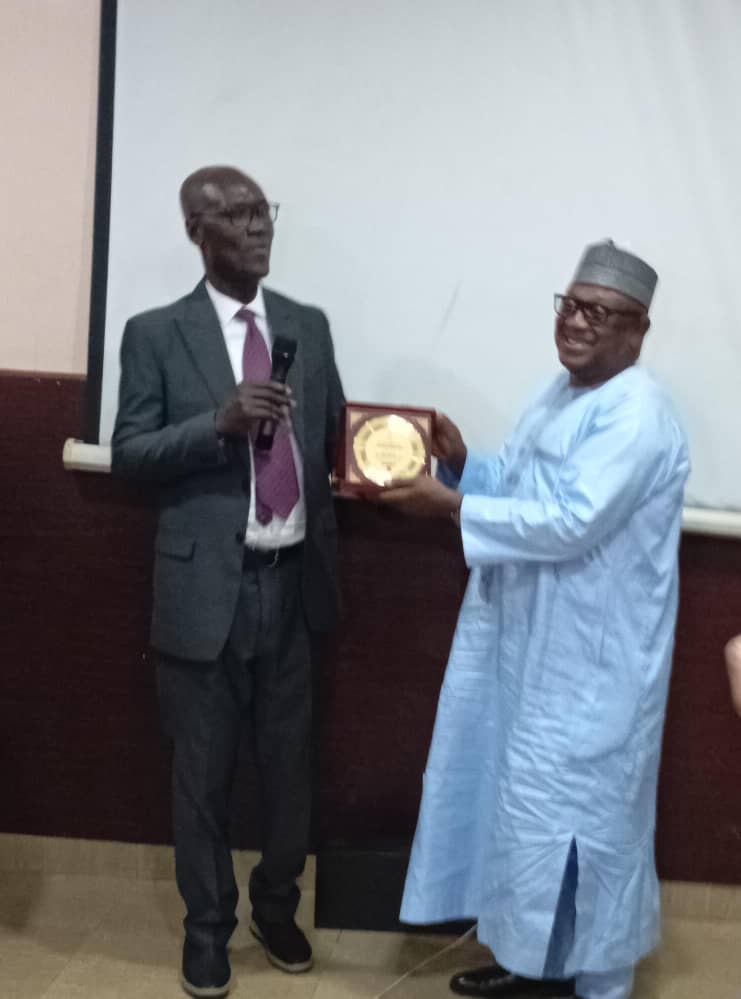Nigerian Shippers’ Council Seeks An Aurgent Repeal Of Existing Act To Fully Transition To Economic Regulator

Nigerian Shippers’ Council Seeks An Aurgent Repeal Of Existing Act To Fully Transition To Economic Regulator
By Jerry Aguigbo
Executive Secretary/CEO, Nigerian Shippers’ Council, Bar. Pius Akutah speaking at the 2024 Annual Seminar for maritime Journalists said that recognizing the legal regulatory gap in the Nigerian Shipper’s Council, there is an urgent need to repeal the existing NSC`s Act in order to empower the Council to be able to discharge its mandate as Port Economic Regulator.
Bar Akutah who was represented by the Director Special Duties, Alh. Mustapha Zuberu at First Mediacon organised Seminar for Maritime Journalists
categorically stated that the bill which seeks to repeal the Nigerian shipper’s council act cap 133 laws of the federation of Nigeria [LFN] and enact the Nigerian port regulatory agency act is already passed by house of Assembly and is currently awaiting concurrence of the senate.
“The Port Economic Regulation Bill when passed into law will promote efficiency and streamline processes in the nations maritime sector. These roles that they are playing as economic regulators, once we have the law in place will give the Council the necessary clout to regulate the sector effectively. The idea of pushing for its transmutation to Nigerian Port Economic Regulatory Agency is to enhance efficiency and competitiveness of the nation’s port.
Meanwhile, before the coming into the law, the council has been having constructive engagement with all stakeholders to ensure efficiency at the nations port. Recently, an agreement was signed on Friday 23rd, August 2024 by the Maritime Workers Union of Nigeria (MWUN) and the Shipping Agencies, Clearing and Forwarding Employers Association (SACFEA) for Minimum standards of conditions of service for workers in the shipping industry.
This is to ensure labor stability in the sector to mitigate incessant labor unrest. Looking forward things would change holistically. There will be effective regulation, streamlining of ports process, removal of checkpoints, free port access roads, automation as well as addressing other anomalies at the nations port.”
He therefore recommends the
Strengthening of Infrastructural development: “The NSC should continue advocating for sustained investment in port and transport infrastructure, leveraging public-private partnerships to address bottlenecks and capacity issues.
Further investment in digital technologies should be prioritized to modernize operations, reduce inefficiencies, and improve transparency within the shipping and logistics sectors.
Capacity Building Initiatives: More comprehensive training programs targeting industry stakeholders should be implemented to improve skills and knowledge, particularly in logistics, shipping management, and digital tools.
Collaboration with Regional Bodies: The NSC should continue to collaborate closely with regional trade bodies to maximize the opportunities presented by the AfCFTA, ensuring that Nigerian shippers are well-positioned in the global marketplace.
Promote Sustainability: A more aggressive push towards green shipping initiatives will position Nigeria’s maritime sector as a sustainable and responsible part of the global supply chain.”
The Nigerian Shippers’ Council is at a pivotal moment in its history, as its transitions to meet the evolving demands of a dynamic global trade environment. While significant challenges exist—ranging from infrastructure deficits and policy inconsistencies to security concerns—the prospects for the future are promising. By embracing technological advancements, strengthening regional integration, and focusing on sustainability, the NSC has the opportunity to reposition itself as a world-class regulator and facilitator of trade. The successful implementation of these prospects will require strong collaboration with key stakeholders, continued advocacy for policy reforms, and a commitment to enhancing the capacity of Nigeria’s maritime and logistics sectors.
Through a strategic focus on these areas, the Nigerian Shippers’ Council can continue to play a central role in Nigeria’s economic development, enhancing the competitiveness of Nigerian shippers and ensuring that the country remains a significant player in global trade.





